Noise Pollution & Public Acceptance of Drone Flights
Drones are increasingly common across industries, including agriculture, mapping, surveillance, disaster response, medical delivery and even in househ
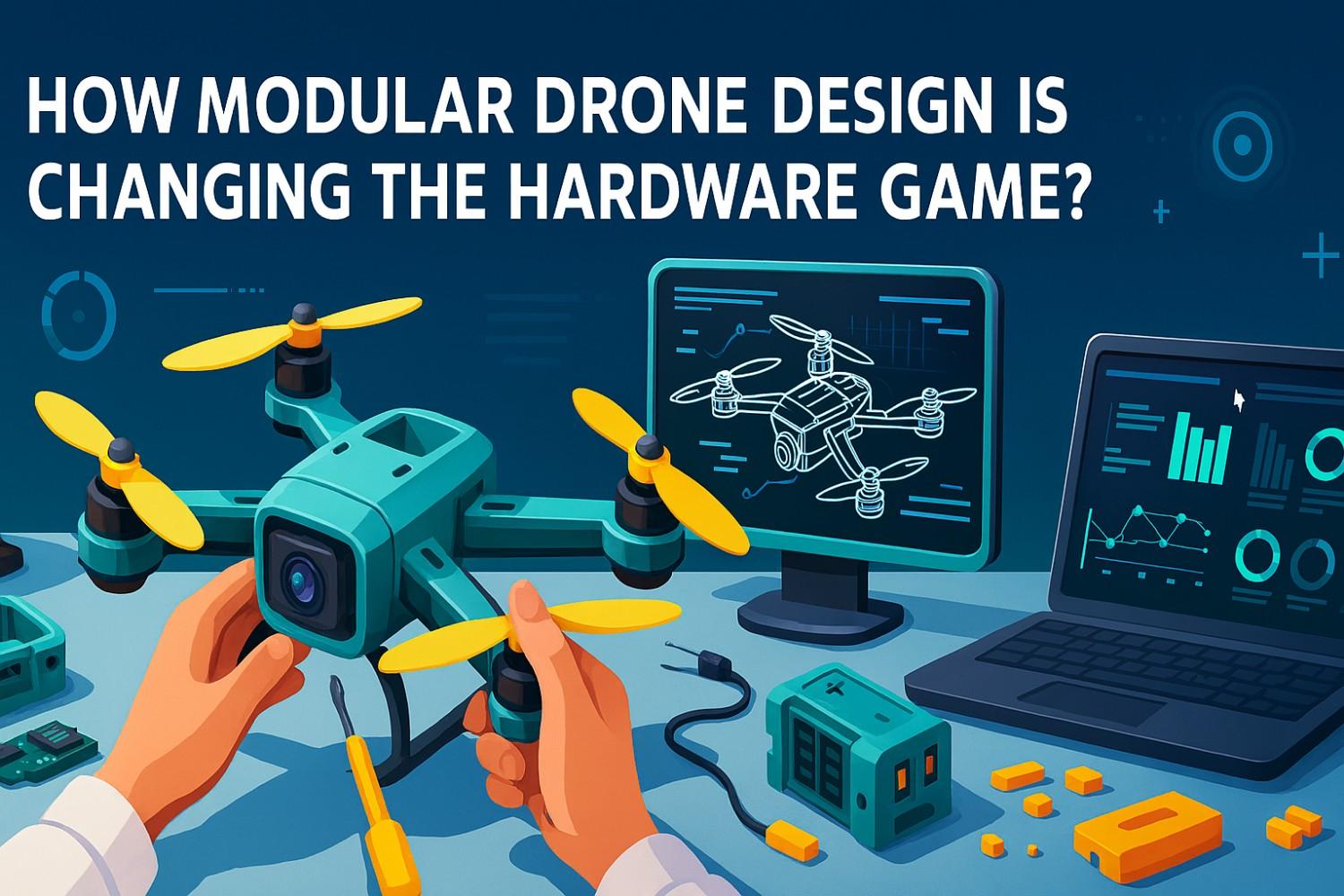
There has been a significant increase in the use of drones in agriculture, disaster management, security, mining, infrastructure inspection and logistics. A key element that made significant progress in this development was the rapid advancement of modular drone design. This change expanded drone competencies but also addressed challenges in the hardware industry. Its impact is more profound in India, as diverse geography, growing industries and increasing tech requirements are making the modular approach an essential choice.
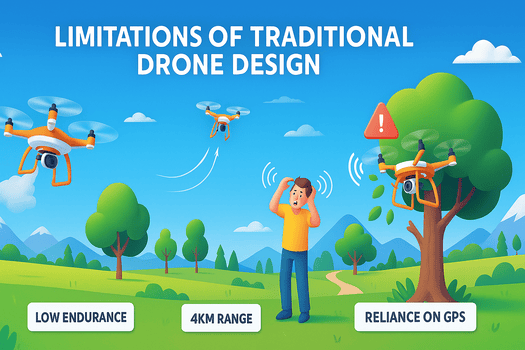
Traditionally, the primary basis of drones was hardware. It was not easy to adapt a drone advanced for a precise task for further purposes. For instance, agricultural drones could prove particularly useful for security surveillance or delivery tasks. This forced users to obtain distinct drones for various purposes, resulting in higher costs.
Moreover, maintaining these drones was traditionally a significant challenge. A component failure could let down the entire drone, needing a lot of time and resources to repair. Upgrading was an issue, as continuous evolution often made technical requirements infeasible. These challenges called for a more flexible and adaptable model, paving the way for the expansion of modular drone design.
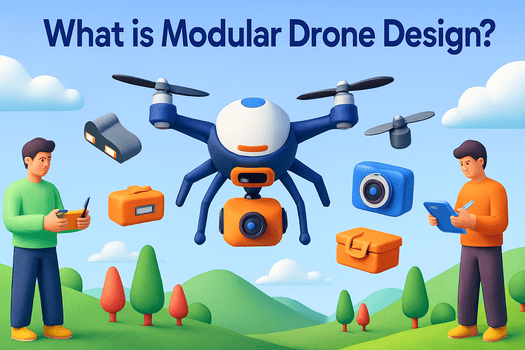
The main principle behind the concept of modular drone design is to divide the drone into several interchangeable modules that can be easily replaced as needed. These have a battery, payload bay, sensors, rotors, a camera, a navigation module, and an AI module. This design transforms the drone into an adaptable platform capable of various tasks, for example, assembling Lego blocks. If a mission requires a thermal camera, the operator can quickly prepare the drone by adding a thermal module. If a multispectral survey of fields is required at a moment's notice, merely changing the sensor can transform the drone into a new role. Therefore, modular design lets a single drone specialize in multiple tasks.
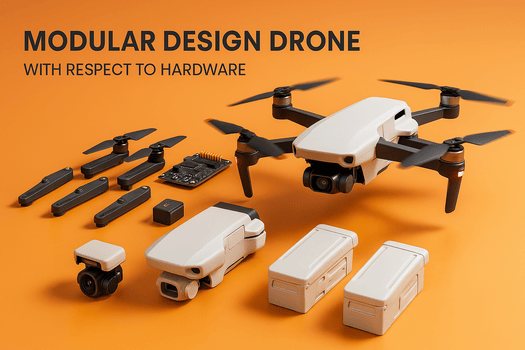
Modular drone design represents a significant shift for the drone hardware industry. A single drone can be used in agricultural surveys, police surveillance, disaster management, and logistics. Users can reconfigure the drone to suit their requirements by simply replacing modules. This adaptability has significantly reduced operating costs, disregarding the requirement to purchase separate drones for different purposes.
Moreover, this model simplifies repairs, as if a single component malfunctions, only the precise module is replaced, sooner than the entire drone. This feature is tremendously beneficial for Indian businesses, where cost-efficiency plays a vital role.
Modularity is particularly significant in disaster management, military operations, and policing, as situations often change rapidly. Modular drones allow quick response. For instance, if a thermal camera is required during a rescue operation, the module can be replaced in minutes and the drone is ready for deployment.
Moreover, given the fast pace of technological change, modular drones are relevant for an extended period. With tech developments, only the applicable module is replaced, not the complete drone. This protects the investment for the long term and the industry keeps pace with the constantly changing technological world.
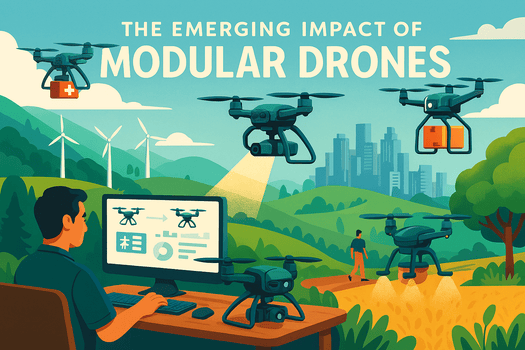
Modular drone design is proving revolutionary in the agricultural sector, as a single drone can now be used for crop health analysis, spraying, multispectral mapping, and yield forecasting. This increases productivity. Modular drones can also be beneficial in infrastructure development projects. Surveys can be done a lot faster with LiDAR modules and superior camera modules. Drone delivery in India, particularly in the logistics and e-commerce sectors, has highlighted the importance of modular design. Temperature-controlled payload boxes, medicine containers, and more.
Modular design is also a boon for the Indian startups. Many startups are now building drones based on modular components, driving innovation and emerging as significant exporters in the global drone market. The boost to domestic manufacturing is decreasing costs and allowing technology to be adapted to local needs.
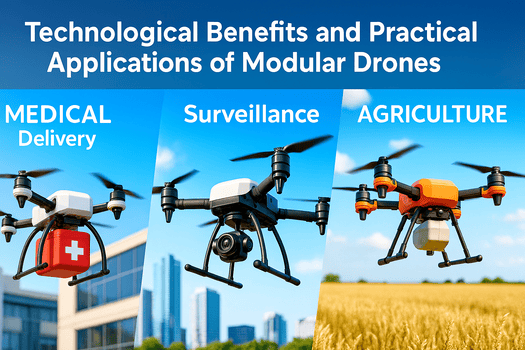
Modular drones are lightweight and robust, and use carbon fibre. This offers drones stability. Replaceable payload systems allow the incorporation of sensors and cameras, thus enhancing the adaptability of drones. Quick-replacement architectures enable prompt repairs in challenging conditions, making them extremely useful in India. Likewise, AI and computing support allow these drones to perform fast data analysis and autonomous flight. Energy efficiency is a substantial advantage, as various battery modules can be evaluated based on the mission duration.
Disaster management teams in the state of Uttarakhand have utilized modular drones equipped with thermal sensors for detecting survivors. Agricultural startups offer dual-use capabilities to farmers by providing spray and survey modules on a single drone platform. High-precision surveys are conducted with the use of LiDAR and RTK modules in the mining and surveying sectors.
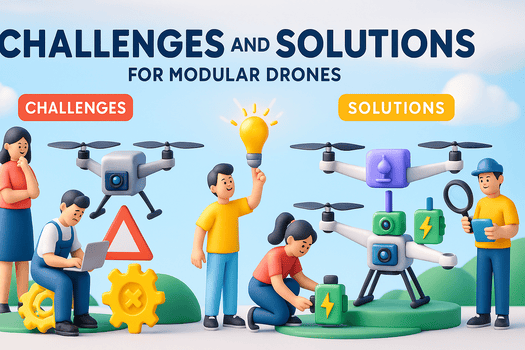
Some challenges also exist in the case of modular drones. The main challenge is the high initial cost, as manufacturing a modular drone is more expensive than conventional drones. However, they are economical in the long term. The challenge is technical compatibility. Modules developed by diverse companies are not always compatible with each other, creating operational issues, to say the least. The solution lies in developing standardized interfaces and universal module ports. The third challenge is associated with training, as operators require specialized training to comprehend module-based systems. For addressing this, better training programs can be developed.

Modular drone design is a concept that is revolutionizing the drone hardware industry. This design enables drones to serve as a multi-capability platform, allowing users to reconfigure them as stated by their precise needs. Its impact is significant in India, where geographical complexities and rapidly evolving technological requirements make this approach a crucial solution.
As Indian startups continue to advance, modular drone design will help position India at the forefront of global hardware competition. This represents not only tech evolution but a pivotal step towards monetary development and social enablement. If you want to become a trained drone pilot or have a drone at your disposal, you can always come to us at Flapone Aviation.
Not sure which drone fits your needs? Our experts can guide you to the perfect UAV for your mission.